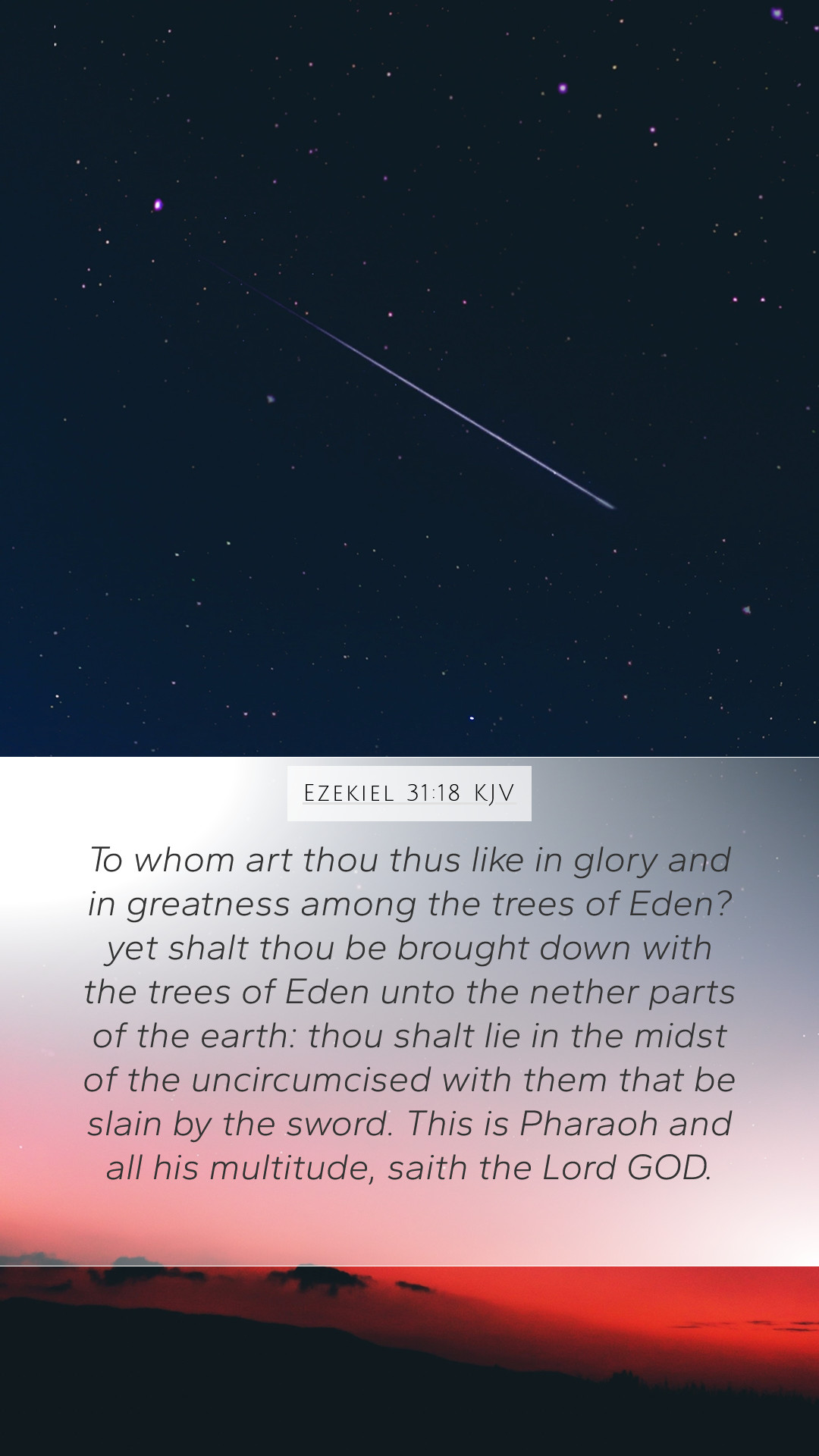Ezekiel 31:18 - Meaning and Commentary
Verse: "To whom art thou thus like in glory and in greatness among the trees of Eden? yet shalt thou be brought down with the trees of Eden unto the nether parts of the earth: thou shalt lie in the midst of the uncircumcised with them that be slain by the sword." (Ezekiel 31:18)
The verse from Ezekiel 31:18 serves as a poignant declaration concerning pride, downfall, and the fleeting nature of power and glory. The profound metaphor of trees symbolizes nations or leaders, and the message reveals how they might seem mighty but can be brought low.
Summary of Biblical Interpretations
This verse captures the essence of divine judgment against prideful nations and their inevitable downfall. The commentaries of noted scholars provide insightful perspectives on this theme.
Insights from Public Domain Commentaries
- Matthew Henry: Henry emphasizes the futility of pride by likening the mighty entities to the trees of Eden, known for their grandeur but ultimately falling into destruction. He argues that temporal glory is transient, and there is a stark reminder that all human power will be humbled before God.
- Albert Barnes: Barnes elaborates on the imagery of downfall. He interprets the "nether parts of the earth" as a state of humiliation, signifying the fate of nations that forget their dependency on divine authority. He points out how greatness, if not aligned with humility before God, leads to ruin.
- Adam Clarke: Clarke adds a historical context to the interpretation, suggesting that this scripture serves as a warning to both Israel and other nations. He reflects on how the nations that once had exalted positions would share the fate of those who were weak and slain, indicating a divine leveling of all in death.
Understanding the Themes
The main themes derived from Ezekiel 31:18 include:
- Pride and Humility: The scripture warns against prideful existence without recognition of God's sovereignty.
- Judgment: It carries a message of inevitable judgment upon nations that exalt themselves against God.
- Temporal vs. Eternal: There is a stark contrast between temporal glory and eternal realities; earthly positions shift, but God’s truth remains constant.
Applications of the Verse in Daily Life
Reflecting on Ezekiel 31:18 can lead to vital lessons in personal conduct and the understanding of societal structures:
- It encourages individuals to practice humility, recognizing that nothing is permanent and that reliance on God is essential.
- This biblical text serves as a reminder to leaders and nations to pursue justice and righteousness, lest they face eventual judgment.
Cross References
Related verses that complement the themes of Ezekiel 31:18 include:
- Isaiah 14:12-15: A lamentation over the fall of Babylon, illustrating similar themes of pride and downfall.
- Proverbs 16:18: "Pride goes before destruction, and a haughty spirit before a fall," reinforcing the message of humility.
- Lamentations 2:15-16: Reflects on the humiliation of a fallen nation, echoing the consequences of pride.
Conclusion
In Ezekiel 31:18, we find a profound lesson on the transient nature of glory and the importance of humility before divine authority. This biblical verse interpretation encourages believers to seek understanding in scripture, realizing how applicable these ancient texts remain in contemporary life.


